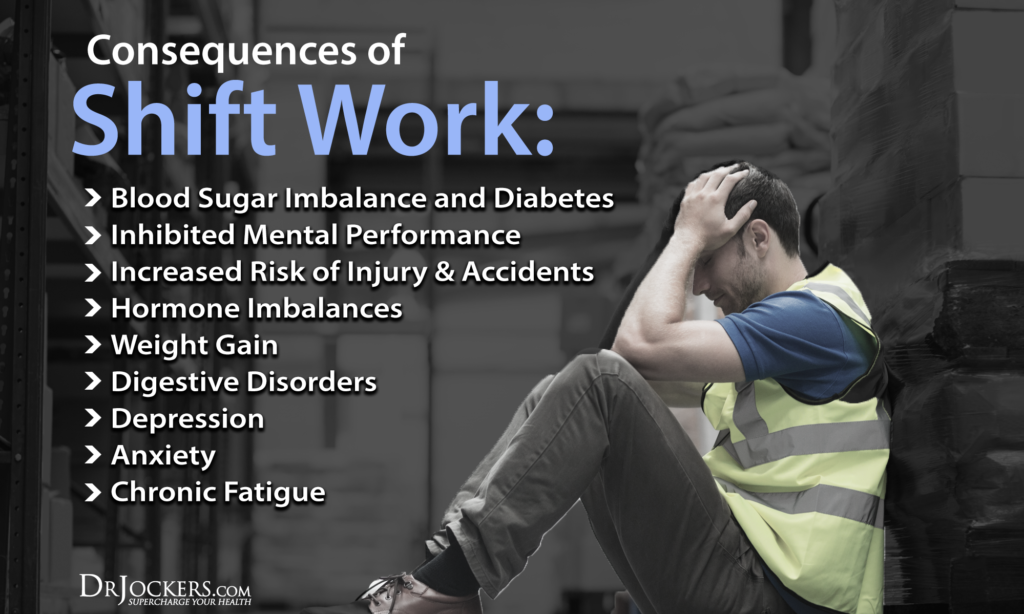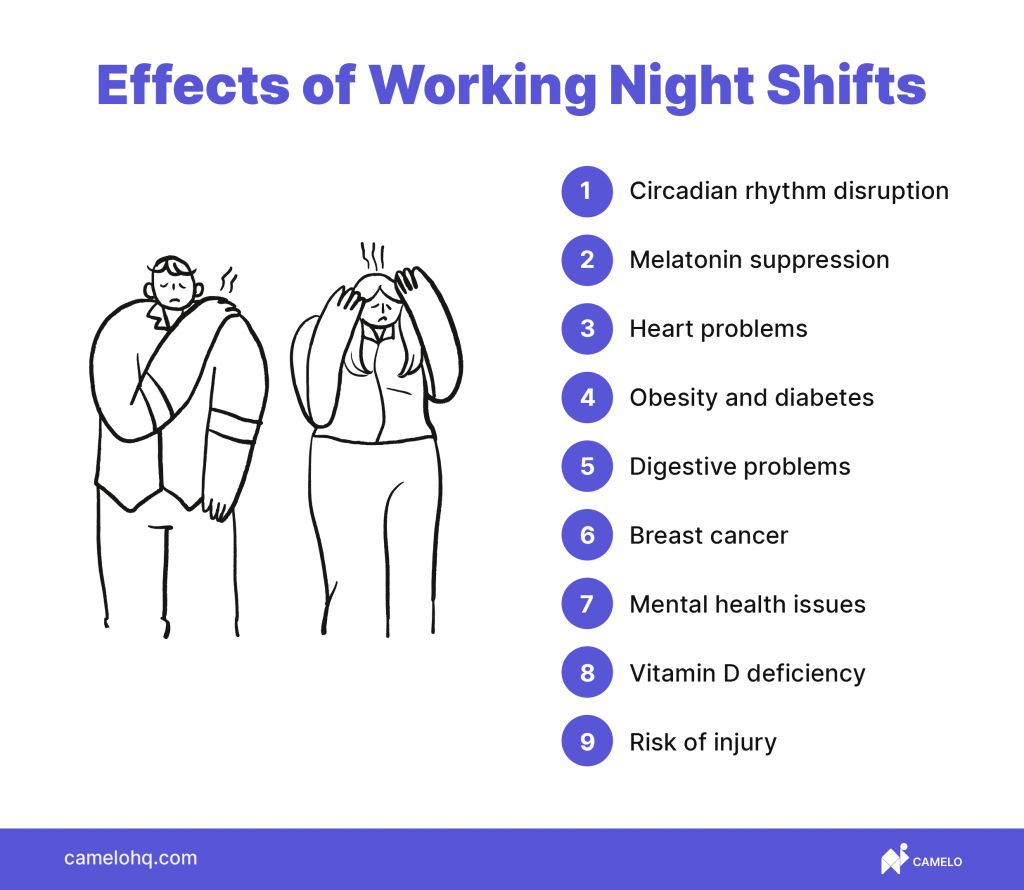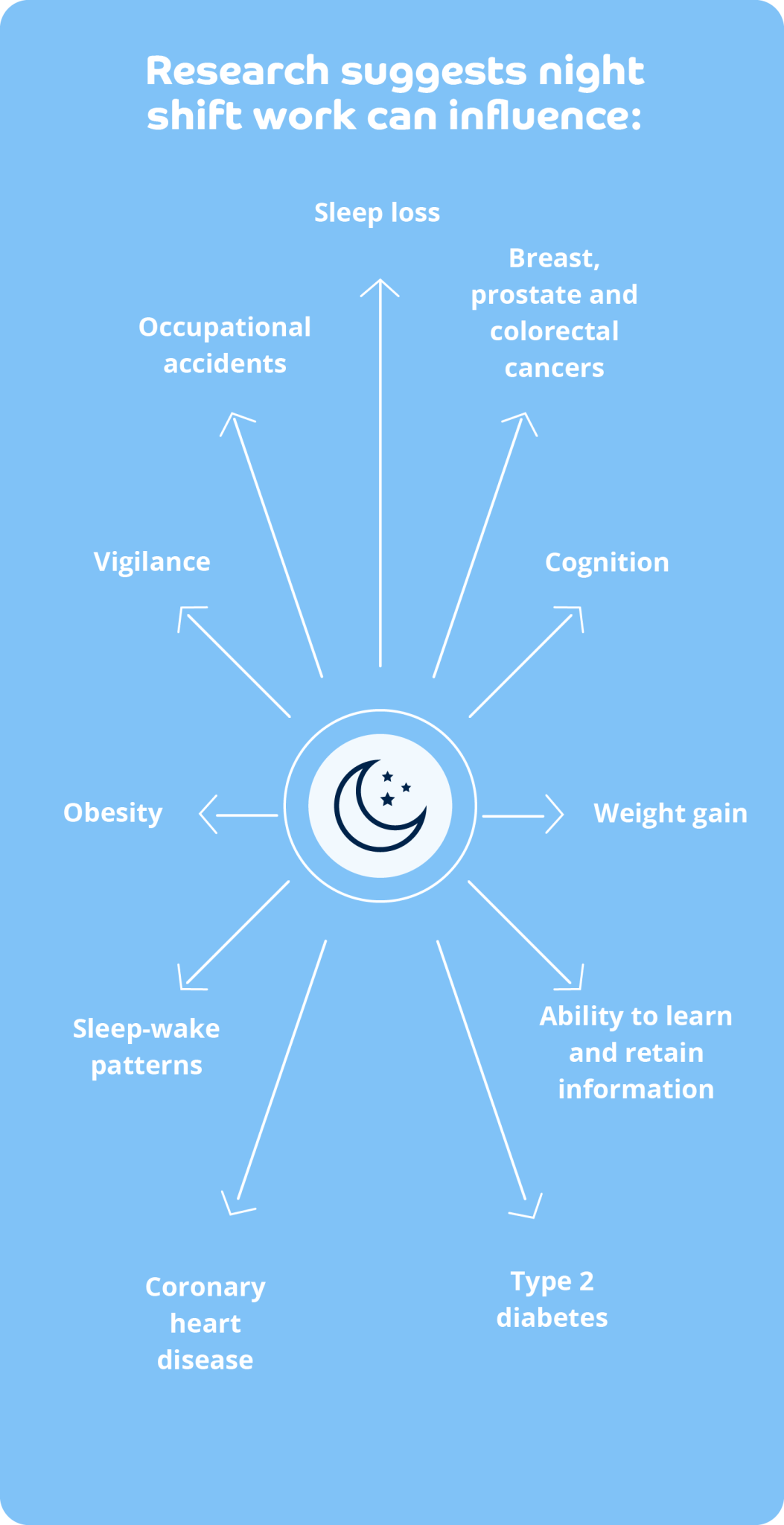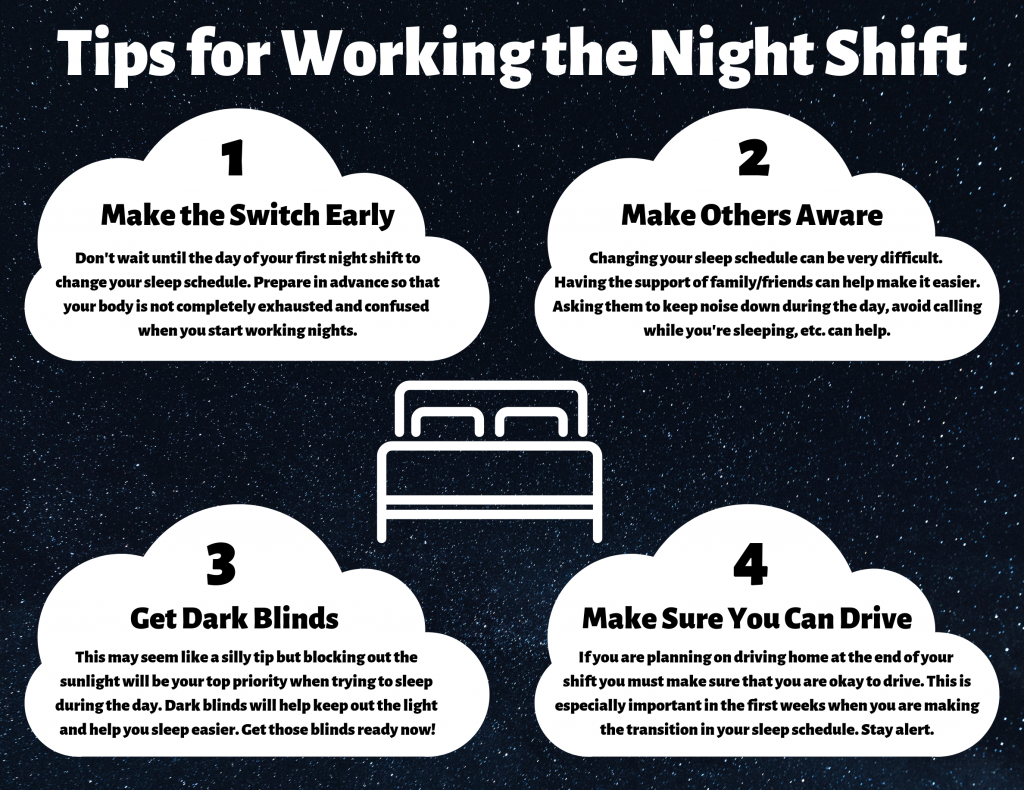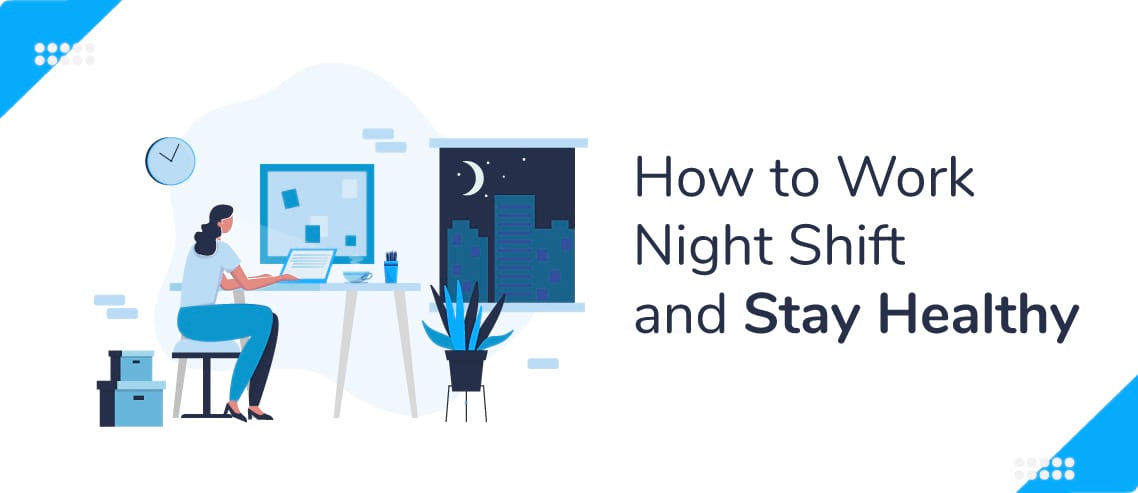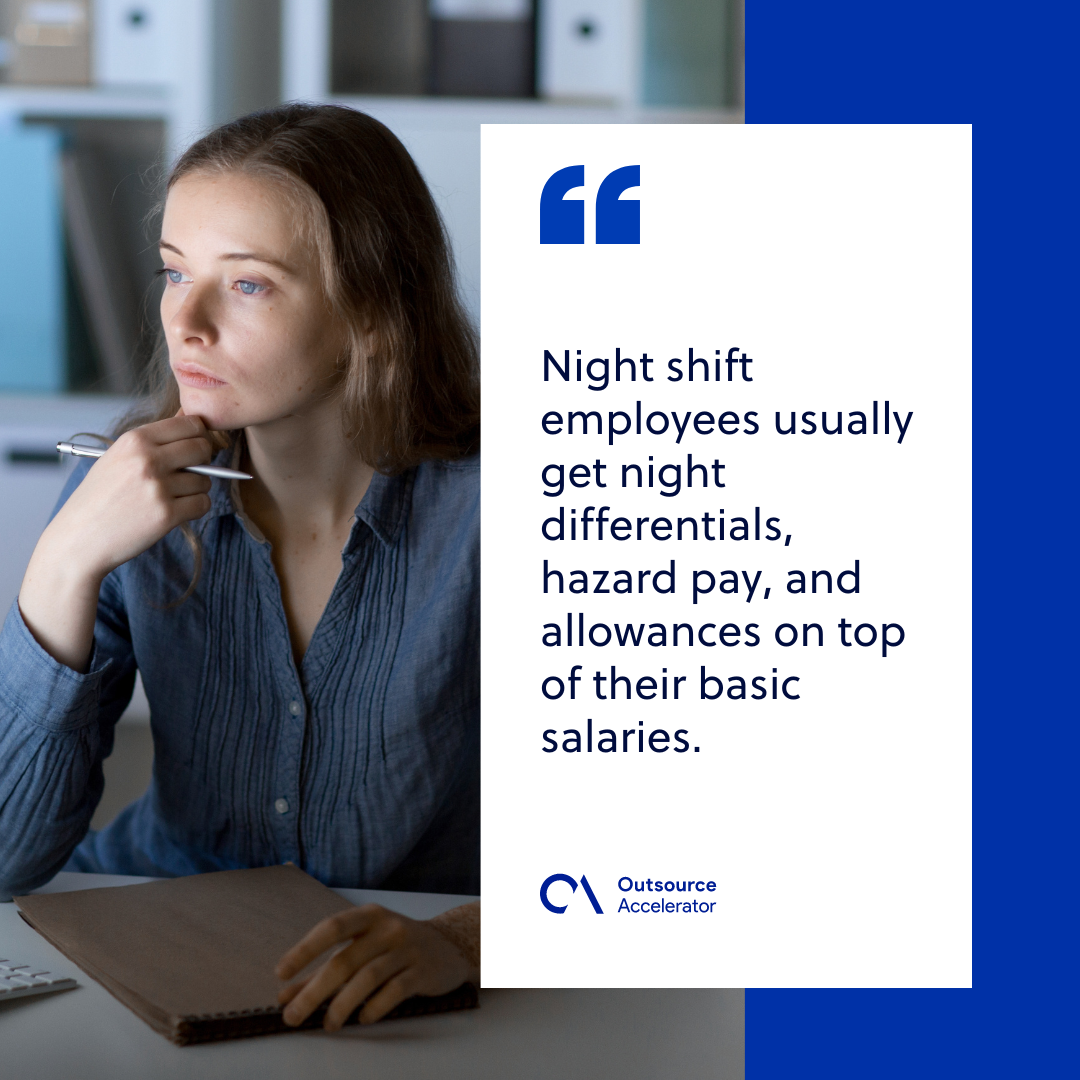At What Age Should You Stop Working Night Shifts

The relentless hum of machinery, the artificial glow of monitors, and the struggle against the body's natural rhythm – night shift work, a necessity for many industries, takes a silent toll. But at what point does this toll become too high, particularly as workers age? The question of when to cease working night shifts is not just a matter of personal preference; it's a complex interplay of physiological changes, increased health risks, and evolving societal considerations.
This article delves into the multifaceted issue of aging and night shift work, exploring the scientific evidence surrounding its impact on health, cognitive function, and overall well-being. We will examine recommendations from occupational health experts, analyze relevant studies, and consider the experiences of workers who have navigated the challenges of nocturnal employment. Ultimately, this exploration aims to provide a comprehensive understanding of the factors individuals and employers should consider when determining the appropriate age to transition away from night shift work.
The Science of Circadian Disruption
The human body operates on a roughly 24-hour cycle known as the circadian rhythm, governed by an internal clock located in the brain. This rhythm regulates numerous physiological processes, including sleep-wake cycles, hormone production, and body temperature.
Night shift work inherently disrupts this natural rhythm, forcing the body to be active when it's biologically primed for rest, and vice versa. Chronic disruption can lead to a cascade of negative health consequences.
Studies have linked long-term night shift work to an increased risk of cardiovascular disease, type 2 diabetes, certain cancers, and gastrointestinal problems, according to the National Institute for Occupational Safety and Health (NIOSH).
Age-Related Vulnerabilities
As individuals age, their circadian rhythms tend to weaken, making it more difficult to adjust to night shift schedules. The body's ability to repair and recover from the stress of shift work also diminishes with age.
Older workers may experience more severe sleep disturbances, increased fatigue, and impaired cognitive function when working nights. A study published in the journal Occupational & Environmental Medicine found that older shift workers (over 50) reported significantly poorer sleep quality and higher levels of daytime sleepiness compared to their younger counterparts.
The increased risk of falls and accidents is also a significant concern, as cognitive impairment and fatigue can compromise alertness and reaction time. According to the Bureau of Labor Statistics (BLS), workers over 55 generally have a higher incidence rate of workplace injuries.
Expert Recommendations and Guidelines
While there's no universally agreed-upon age to stop working night shifts, several organizations offer guidance. NIOSH recommends minimizing consecutive night shifts and providing adequate recovery time between shifts.
Some experts suggest that workers consider transitioning away from night shifts around the age of 50 or 55, but this is highly individual and depends on factors such as overall health, job demands, and personal preferences. "It's crucial to listen to your body and recognize the signs of chronic sleep deprivation," advises Dr. [Fictional Name] Anya Sharma, an occupational health physician.
She emphasizes the importance of regular health checkups and open communication with healthcare providers about the potential impact of shift work on their well-being.
Individual Experiences and Considerations
The decision to stop working night shifts is often influenced by personal circumstances. Some workers may find that they can tolerate night shifts well into their 60s, while others may experience significant health problems much earlier.
Financial considerations, such as retirement benefits and potential income loss, can also play a role. Many workers rely on the higher pay often associated with night shifts to support themselves and their families.
However, it's essential to weigh these financial benefits against the potential long-term health consequences.
Employer Responsibilities and Solutions
Employers have a responsibility to protect the health and safety of their employees, including those who work night shifts. This includes implementing strategies to mitigate the negative effects of shift work, such as providing adequate lighting, promoting healthy eating habits, and offering sleep hygiene education.
Companies should also be flexible and willing to accommodate the needs of older workers who may be struggling with night shifts. This could involve offering alternative schedules, transferring them to daytime positions, or providing early retirement options.
Implementing job rotation systems can help to reduce the amount of time that any one individual spends working nights, potentially decreasing the cumulative health risks.
Looking Ahead: Future Research and Policy
Further research is needed to better understand the long-term effects of night shift work on aging workers and to develop more effective strategies for mitigating these effects. Larger longitudinal studies that track the health and well-being of shift workers over time are essential.
Policymakers also have a role to play in ensuring that workers are protected from the potential hazards of night shift work. This could include setting limits on the number of consecutive night shifts that can be worked, mandating breaks and recovery periods, and providing access to healthcare services.
As the workforce ages, addressing the challenges of night shift work will become increasingly important. By understanding the science, considering individual needs, and implementing supportive policies, we can help ensure that all workers have the opportunity to age healthily and productively.
In conclusion, there is no magic number. The “right” age to cease night shift work is a deeply personal decision informed by health status, job demands, and financial realities. However, acknowledging the increased risks associated with aging and disrupted circadian rhythms is crucial for both employees and employers to make informed choices that prioritize long-term well-being.
